Phase 1 projects
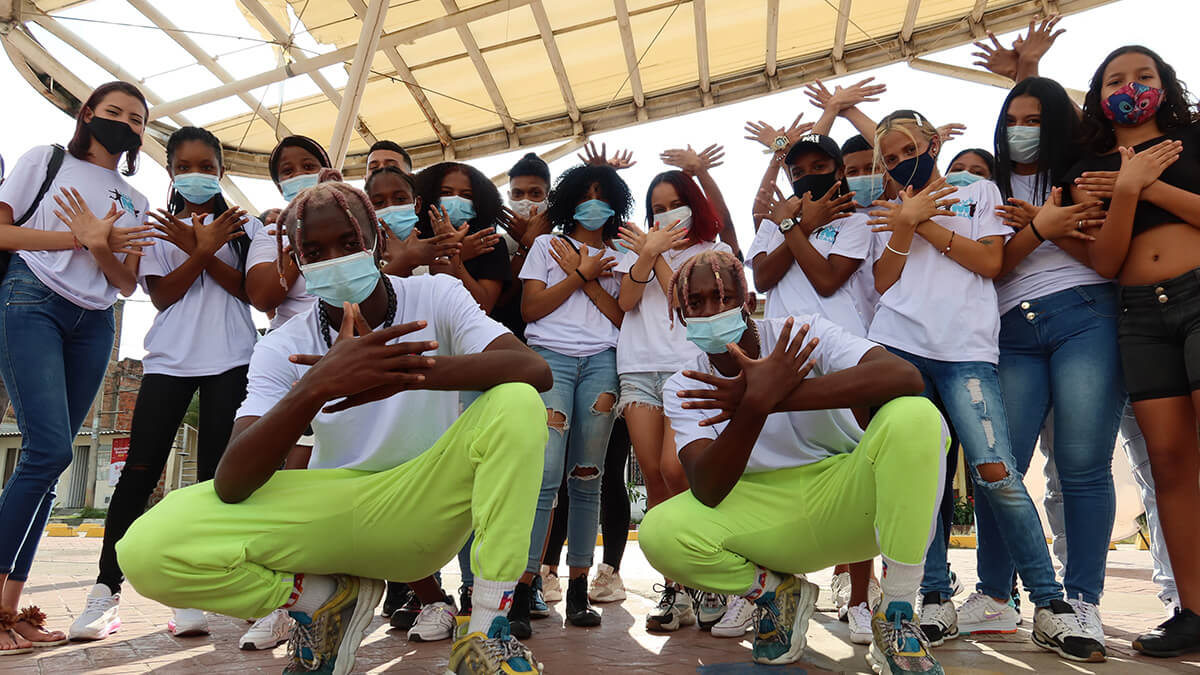
Project overview
The Vivo Mi Calle initiative was established and piloted under Phase I to address the need for safe, accessible and healthy public spaces in vulnerable urban neighbourhoods of Cali, and later in Palmira. The project provided leadership training and support to young people in these areas, empowering them to create healthier environments through active participation in city planning and regeneration processes.
During this first phase of the project, Vivo Mi Calle made significant transformations in the built environment in Cali, such as the ‘Bridge of Colours’ and the Aula Vivo Mi Calle. The latter won three prestigious international awards: the Inspirational Practices for Sustainable Habitat Award, the Best in Show at the UHPH 2021 competition, and the Ocupa 2021 Award at the sixth International Festival of Urban Interventions.
In Palmira, the project implemented the Healthy Cycle Route, a sustainable, safe, equitable, and active corridor. Its design and creation were informed by the opinions of over 1,500 residents, including around 900 young people between 9 and 24 years old.
In total, just under 3,500 adolescents participated in different activities under Phase I of Vivo Mi Calle. The experience and achievements of Phase I laid the foundations for further development and expansion of Vivo Mi Calle into new cities through a second grant under Phase II (2022−2026).
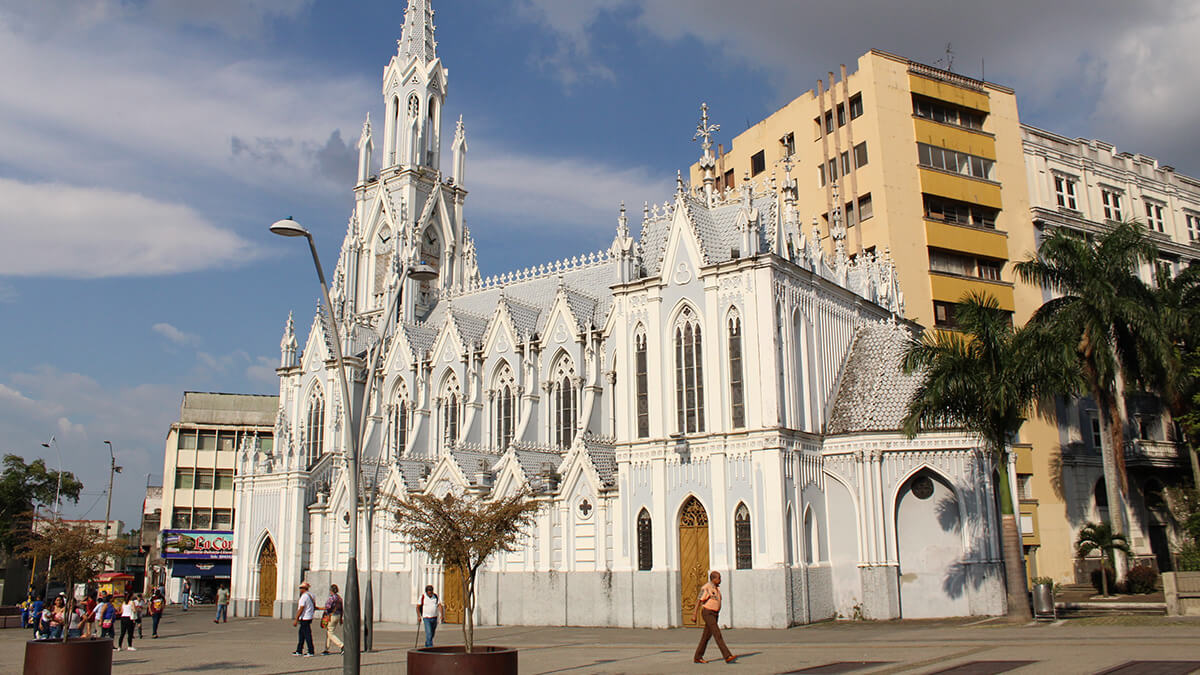
Project overview
Comvos piloted an approach to tackle issues such as aggression, violence, self-harm and sexual abuse for young people in Cali. The pilot used a participatory pedagogical approach. It helped young people develop their social-emotional skills, empowering them to be leaders in their communities and cities. Through the project, young people in Cali were trained to take a leading role in building local solutions to their communities’ problems. The project model was difficult to adapt for online delivery, so the project closed as a result of COVID-19.
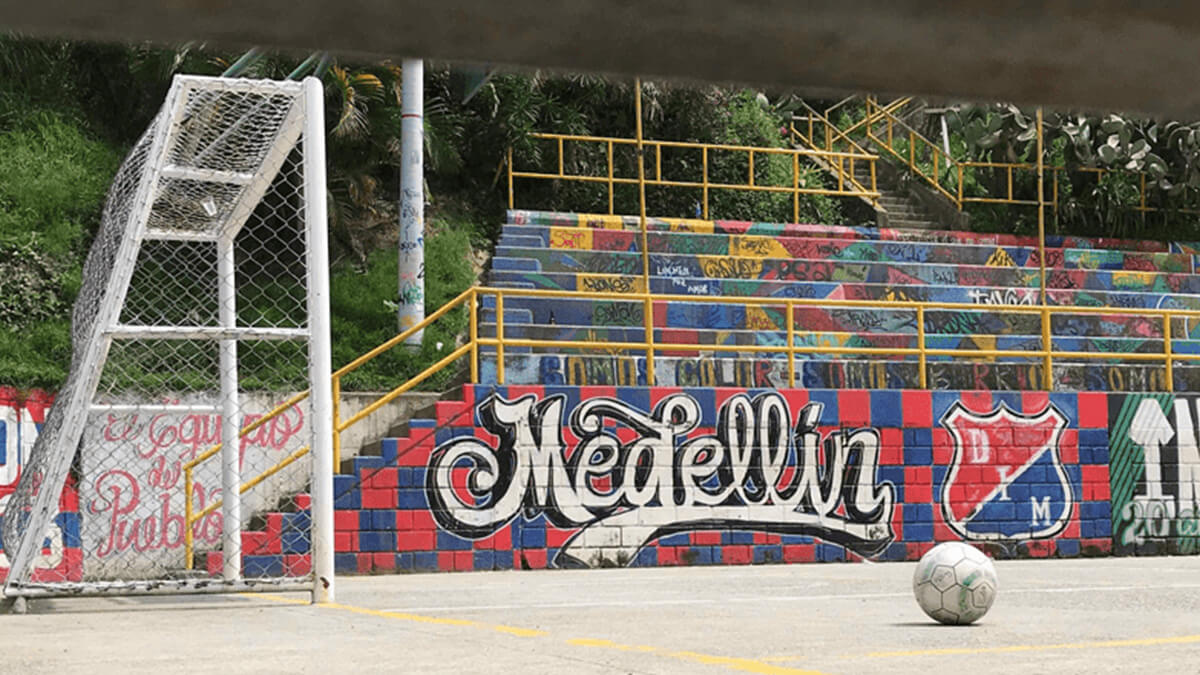
Project overview
Gambetiando piloted an approach to address malnutrition, adolescent pregnancy and socio-environmental challenges in under-served neighbourhoods in Medellín. The pilot used soccer as a vehicle to improve young people’s health and wellbeing. This sport-based training model included development of social-emotional skills and positive values, nutrition training with families, and a social entrepreneurship programme. The project model was difficult to adapt for online delivery, so the project closed as a result of COVID-19.
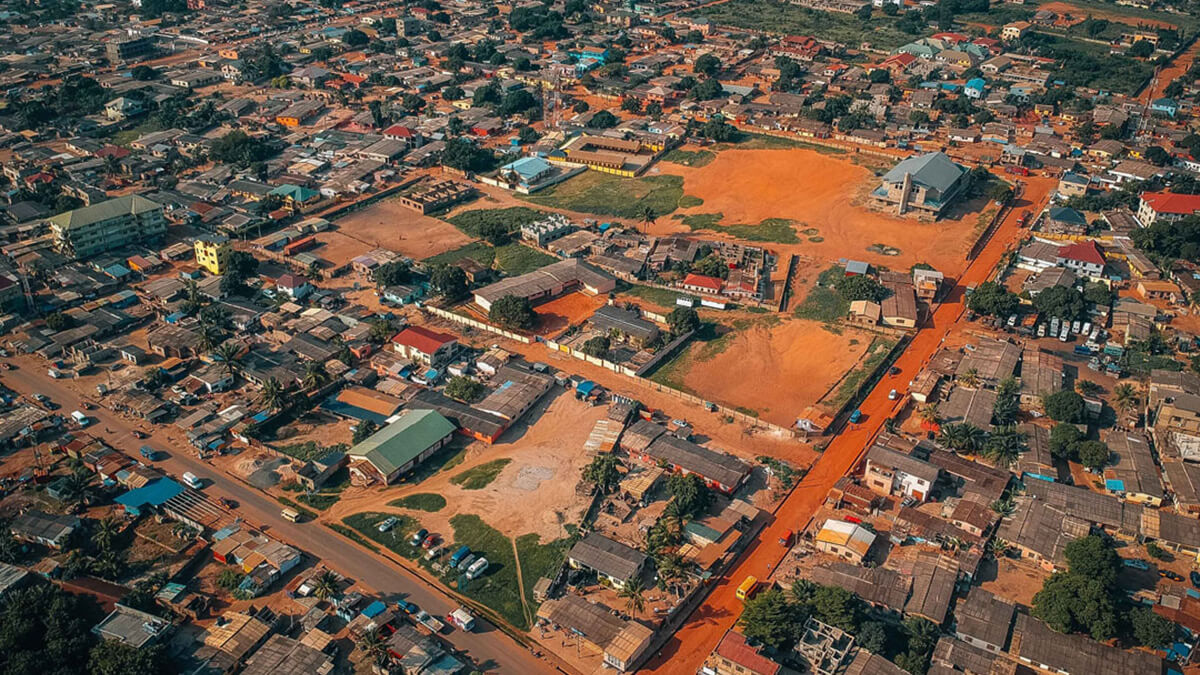
Project overview
Responsive Adolescent Health Interventions built a consortium to advance policy research and guide action plans which promoted adolescent health and wellbeing in Tamale, Ghana. The pilot project contributed towards national discussions on achieving the UN’s Sustainable Development Goal 3 (Good Health and Wellbeing). It also related to wider global goals on a national level. The project used the pilot in Tamale to inform national level policies and replicate in the city of Ashaiman.
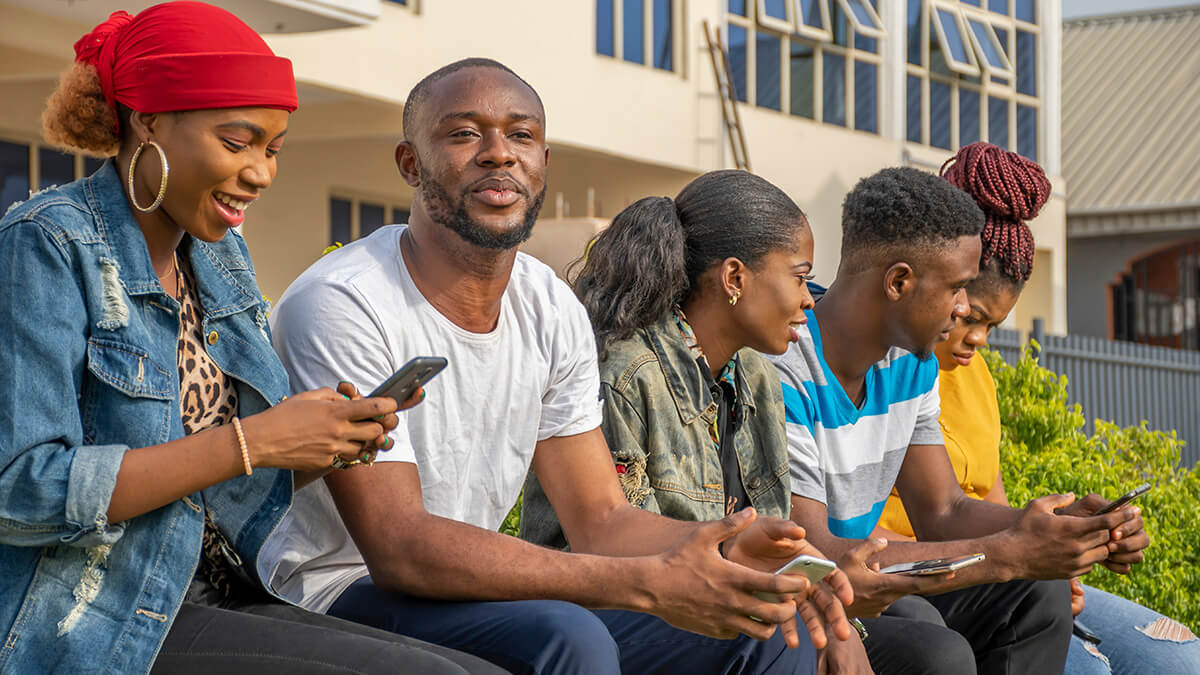
Project overview
In Phase I, a multi-stakeholder initiative named Fort pour le Futur was launched in Thiès. The pilot project aimed to promote improved rights and enhance services around improved nutrition and sexual and reproductive health rights and services. During Phase I, Fort pour le Futur drew on collaborations between non-governmental partners, city and national level government bodies, and the University of Dakar to build a model of integrated nutrition and sexual and reproductive health support and services. Based on lessons learnt in Phase I, Fort pour le Futur has been supported to scale up and expand in Phase II (2022−2026).

Project overview
The Safe, Vibrant and Healthy Public Spaces project aimed to embed youth priorities and participation in urban development, particularly in the development of public spaces. The HCA grant supported the design and testing of a public space assessment (PSA) framework, led by WRI India. The goal of the framework was to enable communities to directly assess and suggest improvements to public spaces.
The project positioned adolescents in these communities as Public Space Ambassadors, leading in assessing the current condition of public spaces, proposing design improvements, and implementing changes using tactical urbanism methods. A total of 200 adolescents were involved in the pilot. The potential of this demonstrator project led to a Phase II grant for further expansion of these approaches.

Project overview
Haqdarshak trialled an approach to address the information gap around citizen rights in under-served communities. The project trained young people in these communities about existing welfare schemes and programmes. It also empowered them to support their communities to access these schemes while securing a livelihood for themselves. Haqdarshak also provided young people with a platform to liaise with local government departments and contribute to strengthening local governance.

Project overview
Co-creating Healthy Cities for Adolescents and Youth (Phase I) aimed to transform Da Nang into a healthy, dynamic and youth friendly city. Its goal was to ensure the wellbeing and participation of young people through strategic partnerships, capacity building, and digital tools. Led by UNICEF Vietnam, the project initiated several consultation workshops to gather youth perspectives and solutions for their city. Suggestions were integrated in the 2021−2030 Da Nang City Programme of Action on Children to promote children and young peoples’ rights in policymaking and city planning processes.
The project also involved adolescents in mapping out youth initiatives in Da Nang, which identified strategic partnerships and built a youth network. The project also conducted surveys with young people to gather their opinions on how to increase their participation in fixing community and city issues (e.g. through better access to information and increased leadership skills).
Alongside the project, UNICEF and the Da Nang Government jointly launched a situation analysis of children and adolescents to identify the pressing challenges affecting children and young people in the city. Findings from this study were used to inform city planning strategies and shaped strategies for future project interventions, which formed the basis for a Phase II project grant.
Read more about Co-creating Healthy Cities for Adolescents Phase II